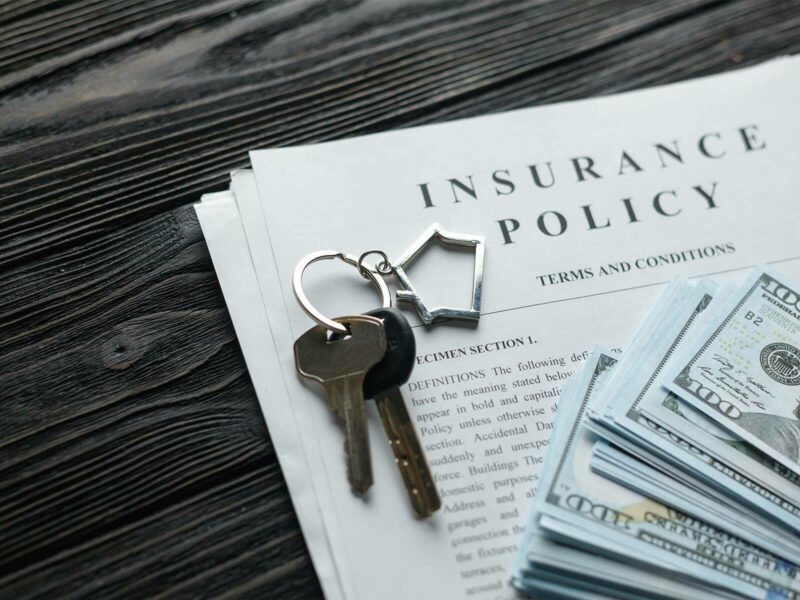Article Excerpt
Lenders may require PMI for loans with small down payments. Learn about when you have to pay for PMI, and how to get rid of it.
Some mortgage lenders will agree to lend you money to buy a home with a relatively low down payment. Some loan programs specifically include low or zero down payments as a feature. In other situations, a lender might require private mortgage insurance (PMI) in exchange for loaning money with only a small investment from you.
Lenders typically require you to obtain PMI for conventional loans when the down payment is less than 20% of the purchase price. The good news is that you can get rid of a PMI requirement. Read on to learn how.
![Photo by teofilo from Flickr [Creative Commons] Insurance building](/images/articles/_generalPhotoStandard/InsuranceBuilding.jpg)
Photo by teofilo from Flickr [Creative Commons]
What is PMI?
PMI is a type of insurance that protects the lender in case you stop making payments on your loan. Two types of PMI are available:
Borrower-paid mortgage insurance (BPMI), which you pay for through an extra fee on your monthly mortgage bill.
Lender-paid mortgage insurance (LPMI), the cost of which is passed on to you through a slightly higher interest rate. You will pay some part of the cost of the policy at closing.
How much does PMI cost?
The amount that you will pay for PMI will most likely be 0.5% to 1% of the total loan amount per year. The exact cost will depend on multiple factors, including:
The amount of your down payment, as a percentage of the sales price
Your credit score
The type of loan, e.g. fixed-rate or adjustable
Other factors could include your debt-to-income ratio (DTI) and the value of the home.

Photo by Mikhail Nilov from Pexels
What does PMI cover?
PMI protects the lender’s interests. It does not provide you, the borrower, with any benefits beyond the ability to make a lower down payment.
Other types of insurance that are commonly involved in mortgage loans offer protection to both you and the lender to various extents. Homeowner’s insurance arguably protects both your and the lender’s interests by covering damages to the property. Mortgage protection insurance, an optional type of coverage, ensures that your mortgage will be paid in the event of your death. It protects the lender and the beneficiaries of your estate.
PMI Rules for Different Types of Loans
PMI mainly applies to conventional loans, although other programs may require a similar type of insurance coverage. Mortgage programs that specifically do not require down payments do not include any sort of mortgage insurance requirement, although they may include other fees.
Conventional Loans
Most conventional mortgage loans require PMI when the down payment is less than 20% of the purchase price. Once you have made enough payments on the principal of your loan that you have 20% or more equity in the home, you can get rid of PMI. How you do this can get complicated.
If you have BPMI, you can ask for permission to cancel the policy once your equity reaches 20%. Your monthly payment will no longer include the cost of the PMI premium.
LPMI presents a greater challenge. The lender pays the premium and passes the cost on to you through a higher interest rate. You can get rid of LPMI once you hit 20% equity, but in order to reduce the interest rate to what it would be without PMI, you must refinance the loan.
FHA Loans
All loans backed by the Federal Housing Administration require payment of a mortgage insurance premium (MIP), which serves the same function as PMI. You pay for MIP at closing and in each monthly mortgage payment. You cannot get rid of MIP by paying down the principal amount of the loan. The obligation to pay for MIP may expire, however, depending on the amount of your down payment:
If your down payment was less than 10% of the purchase price, you must pay for MIP for the life of the loan.
If your down payment was 10% or more, you must pay for MIP for eleven years after the closing date.
VA Loans
The loan program offered through the U.S. Department of Veteran’s Affairs does not require down payments. It therefore also does not require PMI, MIP, or any other form of mortgage insurance. It does, however, require payment of a “funding fee” at closing. The amount of the fee is greater for lower down payments.
USDA Loans
Loans backed by the U.S. Department of Agriculture also don’t require PMI. Much like VA loans, though, you will have to pay a “guarantee fee.” This fee includes an upfront amount typically paid at closing and an annual fee paid over the life of the loan.
Jumbo Loans
As the name suggests, jumbo loans finance the purchase of properties that are too big for other mortgage properties. Whether you must obtain PMI will depend on the individual lender. Jumbo loans present a greater risk for lenders since Fannie Mae and Freddie Mac do not purchase these loans for sale on the secondary mortgage market. Most lenders that make jumbo loans require large down payments to offset their additional risk. They may or may not also require PMI.

Image by Pete Linforth from Pixabay
What do I actually need to do to get rid of PMI?
If you have a conventional mortgage loan, you may be able to get rid of PMI once you have 20% equity. How you go about doing this depends on what kind of PMI you have.
Paying Down Principal Ahead of Schedule
Regardless of whether you have BPMI or LPMI, you should notify your lender in advance if you plan on making extra payments so that you can get to 20% equity faster. Do not assume that they will figure out what you are doing and why.
Getting Rid of BPMI
If you have BPMI, your lender can cancel the policy once you reach 20% equity. You must notify the lender and get their permission. Find out from them what procedure they want you to follow. Be sure to follow up with them to confirm that they have canceled the policy.
Getting Rid of LPMI
Once you have reached 20% equity, you can get rid of LPMI by refinancing your home. You will have to pay for PMI again if you refinance with less than 20% in equity. You do not have to refinance with your current lender.
Have more questions? Ready to get started?
The Wood Group of Fairway can answer all of your questions about home mortgages, closing costs, and insurance obligations. We’re also on standby to help you figure out what kind of loan options you qualify for. Just answer a few quick questions to get started!



